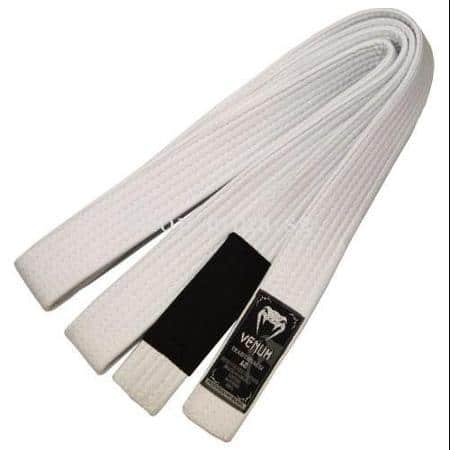
If you are new to BJJ, know these 5 things
Brazilian Jiu Jitsu is a great martial art and hobby for anybody to pick up. As long as you find a good school with a good instructor and great training partners, anybody can learn the art and progress. However, it is a two way street! While there are obviously some traits that you want to find in a school such as the previously mentioned good instructors and training partners, there are also some pieces of knowledge that you want to possess or at least be prepared to learn when you step onto the mats for the first time.

1. Brazilian Jiu Jitsu is a Marathon, Not a Sprint.
In America today, (and presumably around the world) we live in a society that is obsessed with instant gratification. If it takes our internet pages more than 7 seconds to load, we start to flip out! It’s Crazy! You see ads on TV that say you can lose weight, up to XX lbs, in only 60 days. Some other martial arts out there have taken advantage of this societal phenomenon, and they run promotions like, “Pay $ XXX and you’ll be guaranteed to get your Black Belt in 2 years!” Karate is notorious for this and places that run these kinds of promotions merely to maximize profits are often referred to as “Mcdojo’s.” Bear in mind that this is not the case with BJJ. At least not yet, and hopefully it never will be!
Brazilian Jiu Jitsu is an art that takes years and years to master, and even then, you will continue to find small flaws in your game that you will want to improve on. Generally speaking, it takes an average of 10-12 years of consistent training (at least 3-4 times per week) to obtain your BJJ black belt. Maybe earning a black belt isn’t one of your goals, and that’s fine! But if it is, you should be be mentally prepared for a long, tough road that will both test you and strengthen you. And no matter how far into the journey you are, understand that there will always be… ALWAYS BE… more to learn. This brings me to our next piece of useful knowledge going into BJJ which is…
2. Understand that you know nothing and always be willing to learn.
There is one kind of person in particular who can be challenging to teach and that is the student who already thinks he knows how to do it or knows a better way. I have seen people walk into a martial art gym, and during their very first lesson after they have been shown a technique, they have said something akin to, “yea that’s cool, but I like to do it this way,” and they proceed to show me their own interpretation of a the technique. Immediately, my reaction is to ask them how much experience they have, and they say that have not had any formal training, but they taught themselves by wrestling with their buddies in the back yard. (This wrestling is often accompanied by alcohol.) This kind of attitude is very frustrating to trained instructors. This kind of attitude not only undermines the years and years we have spent training in the art, but is also gives a horrible first impression to your instructor. The instructor will immediately believe you are going to be nearly un-coachable unless you quickly begin to understand just how little you know. In order to get the most out of your training, you must have faith in your instructor and trust in them the same way that a child trusts a parent. The child may not understand why they should not stick a fork into the electrical outlet, and the parent will not be able to fully explain electrical circuits, volts, and amps to a 2-year old. But obviously we know that just because the child doesn’t understand why we don’t insert forks into mysterious holes in the wall, that doesn’t mean that it is something that we should allow them to do. The same goes for the BJJ white belt, who’s understanding of Jiu Jitsu is similar to the level of understanding a child has about the world around them.
However, this advice is not only to be heeded by white belts. It is important to keep this attitude throughout your entire BJJ career! There is always more to be learned about Jiu Jitsu and higher belts can learn from lower belts all the time. I have been training BJJ for nearly 9 years, and I am still learning new techniques and modifications of “old” techniques. Even as a Brown belt, I enter each training session with a sense of curiosity and a determination to learn something new or learn a better way to do a technique. And there are enough different positions out there and a seemingly never-ending list of techniques to keep me searching, learning, and perfecting for a lifetime. I also believe it is important to search out an instructor who still searches for new techniques and ways to improve what he already knows. When a person stops trying to improve, they become stagnant and unwilling to learn and continue to develop as a martial artist and as a person.
“Follow the man who seeks the truth; run from the man who has found it.”
All of these different positions and techniques and the never-ending search for better, more efficient techniques lead us to our next piece of knowledge that you should be aware of and prepared for coming in as a new student to BJJ…
3. You will feel overwhelmed.
Closed guard, open guard, half guard, spider guard, X-guard, Deep-half guard, Koala guard, inverted guard, butterfly guard, de la riva guard, 93 guard, donkey guard, …YIKES! These are several different types of positions that are merely different takes on one position: the guard! Each of these sub-positions of the guard have their own laundry list of techniques. Then in addition to the guard we have side control, mount, knee mount, North/South, Back control, and all of these positions have their own list of sub-positions. And all of those sub-positions have their own laundry list of techniques to work on from them. After reading this, you may understand why it takes an average of 10-12 years to get a BJJ black belt. All of these positions, sub-positions, variations of positions, and techniques found in each position make for an incredibly over-whelming, seemingly impossible challenge to the beginner.

At Brazilian Jiu Jitsu St Paul, we do our best to give the students these positions and techniques in a manner which will make it easier for them to digest, but you can’t get around the fact that this is quite the task to tackle! Be prepared for this feeling! Embrace it! Look at it as an exciting new adventure which you can attempt to enjoy one milestone at a time! Just hearing all of the different positions and thinking that you have to eventually know them all will be daunting enough, but that isn’t the only thing which will make you feel overwhelmed. In jiu jitsu, you are going to overwhelmed by your training partners. And that goes for everyone. It happens to new students, it happens to veterans. You are going to get submitted: A Lot! You will be overwhelmed when you are submitted or when you have a bigger person sitting on top of you and you have to try to get out. With this knowledge, you will be fully aware of our next point…
4. It will be hard.
Whether you are a brand new white belt looking to lose weight and get into shape or whether you are a seasoned veteran purple belt looking to compete in as many tournaments as you can, BJJ will be hard for you. It’s hard work. I’m sure you already know this, but it isn’t something that you can forget when you come in for your first class. Many people get discouraged. They get caught in enough chokes and eventually they give up telling themselves that they “aren’t good enough.” It will be hard, but you have to fight the urge to “tap out” to training. By bringing yourself in, day after day, class after class, you will begin to notice something: Jiu Jitsu is still hard, but I’m getting tougher. The difficulty of Jiu Jitsu and the challenges that go along with it forge it’s students into hard working, persevering problem-solvers. You will notice that this character development will manifest itself in other facets of your life. You’ll notice you become a more disciplined employee, a better problem-solver in your personal relationships, and persistent when it comes to pursuing any goals whether the goals are related to Jiu Jitsu or not. The difficulty of Jiu Jitsu will, in time, change you and end up having noticeable, beneficial effects that touch every part of your life. Most successes you have, you will be able to credit, at least in part, to the skills and character you have developed while training BJJ. Seeing these benefits and the quality of your life skyrocketing will only reinforce your training habits and consistency, and this flows right into the last thing you should be prepared for when you start BJJ.
5. It may very well completely consume you … in a good way!
When your workout routines and BJJ training schedule lead to promotions at work, a healthier relationship, and more progress toward your personal goals, you quickly make BJJ a priority in your life. Pretty soon, you can’t imagine life without Jiu Jitsu and you question how you had ever gotten through life up until now without it. Some people fall in love with the art so much that they base several decisions upon their training habits. They make small decisions such as what they eat and when to do laundry and big decisions from where they live and what job to take all around whether or not it will be conducive to their BJJ training. Personally, I have made job choices and living placement decisions largely based on my BJJ training opportunities. For many upper belts who have been training for years, Brazilian Jiu Jitsu becomes part of their identity. Obviously people still retain a sense of identity outside of BJJ, but it can become damn near impossible, when asked to describe yourself, to not include Brazilian Jiu Jitsu in your personal summary.
The Martial art of Brazilian Jiu Jitsu has so many beneficial effects on a person such as losing weight, fitness, exercise, getting into shape, relieving stress, engaging in competition, and many more. By checking out and attending classes at Brazilian Jiu Jitsu St Paul you will likely accomplish goals you set for yourself and reap many more benefits you didn’t even know you would want. However, before you start your journey as a jiu jitsu martial artist, it is important to do a quick self evaluation and make sure that you are ready to be a student worthy of an instructor’s knowledge and the team’s efforts.